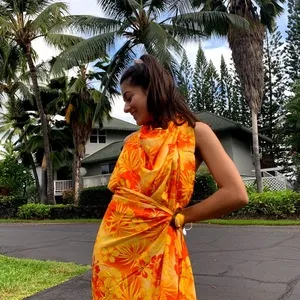I step up to the conveyor belt at Total Wine, a few mini bottles of absinthe and a 6 pack of SPF 50/50 in my arms.
“Can I see your ID?”
“Yes, of course, here it is.”
The cashier scrutinizes my face and beckons the stuffy Manager over.
“Wow, are you sure you’re 21? You look like you’re 12.”
The manager openly laughs at me, his middle-aged gaze uncomfortably looking at my face. Fuming, I grab my alcohol and make myself a gin and tonic cocktail at home. Although this anecdote sounds exaggerated and something most 20-something’s don’t encounter, it is a daily occurrence for me when I shop at Total Wine.
Admittedly, my girlish features and 5’0 stature don’t scream “of age,” but that doesn’t mean I should be belittled when I’m a paying, legal customer.
What is Ageism?

According to the American Psychological Association, ageism is “the negative attitudes based on age, including negative feelings, age-based stereotypes and discrimination.” Ageism is usually associated with the older generation and people (i.e. employers) treating older people less favorably. However, the definition has evolved to include adolescents, children, and young adults as well. Like sex and gender, ageism is another form of discrimination based on age, although it doesn’t get as much attention as other categories.
Examples of Respectful Liquor Stores

At least in Gainesville, Florida, ABC Fine Wine & Spirits and the myriad of gas stations lining University Avenue and 13th street are respectful when it comes to younger customers. My ID still gets checked, but after the cashier sees my lawful birthday, they hand over my wares without question. I understand the rampant use of fake IDs and IDs from older siblings, but when 1) I have a Florida license and 2) my face hasn’t changed since I was 16, there should be no confusion or degradation.
At ABC one night, I even purchased a half gallon of Hendricks gin and didn’t receive the least bit of judgement – on the contrary, the lady made sure I received my free diet tonic water. Overall, this sector of freshly 21-year-olds should be treated as regular customers (because we are).
Here’s How Liquor Stores Can Improve

I only decided to write this article because of how flagrantly disrespectful the Total Wine comments were – I’m used to family friends asking what high school I go to or Publix cashiers asking if I’m a freshman. But at a certain point, you’re tired of hearing that looking young is a bonus since “you’ll look great when you’re 40.” You are who you are, and people (especially liquor store cashiers) should accept that.
To treat younger customers better, cashiers should be firm but respectful. Check IDs until your thumbs fall off for all I care, but don’t make comments in the process. Be respectful of someone’s age, whether they’re 82 or 22. Also, liquor stores shouldn’t single out young people in an obvious way. At Total Wine, the cashier calls a manager over to verify someone’s ID if their ID says 21.
Although I understand this is their protocol, it’s embarrassing for people who are rightfully of age. We’ve waited 21 years to be able to buy Guinness – don’t humiliate us in line and have managers that are disrespectful. The rule of thumb for stores should be “legal until proved otherwise” – if someone is buying alcohol illegally, then repercussions should be assessed (but no verbal ones before that).
Let Me Have My Gin and Drink It Too

Ageism is a two-way street. Regardless of someone’s age, you should treat them as equals in the marketplace setting, especially when that someone is a legally paying customer. I only shop at Total Wine now when I need a specialty liquor or an obscure mini, but beyond that, Publix and Winn Dixie satisfy my beer and wine needs. For all those people who look younger but are actually 21+, it’s time to receive the respect you deserve, not unnecessary comments from cashiers.


